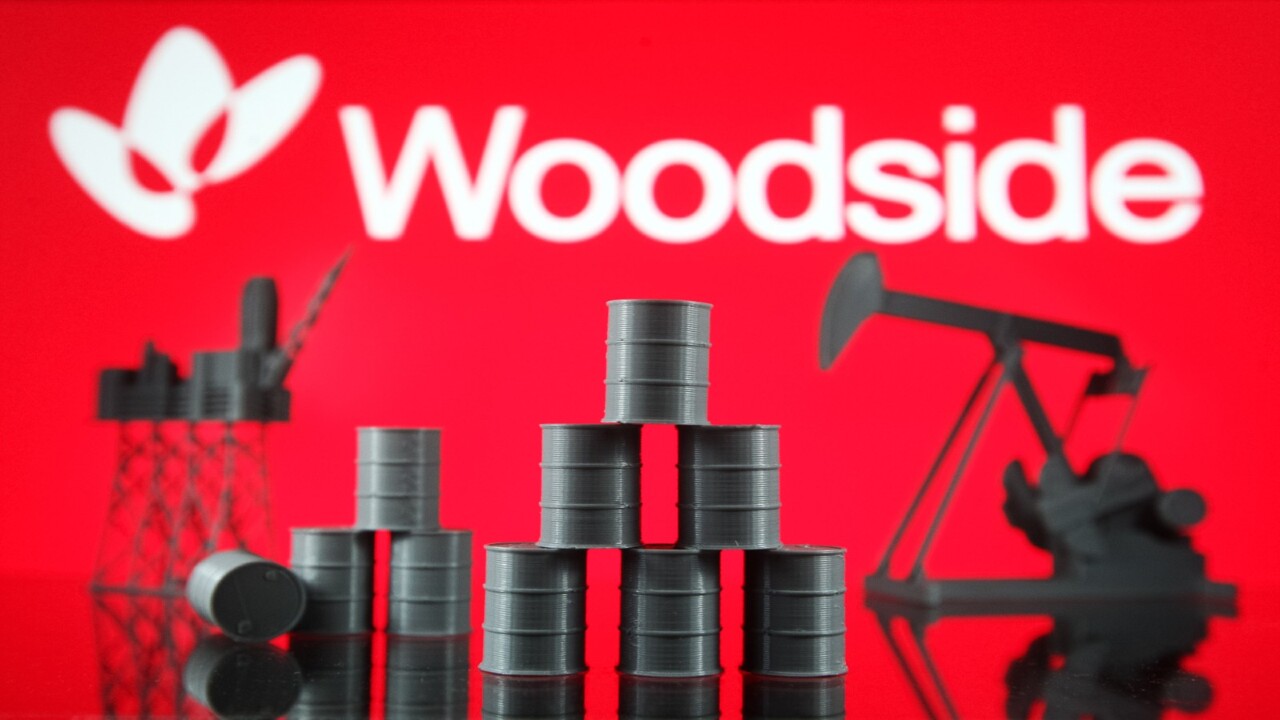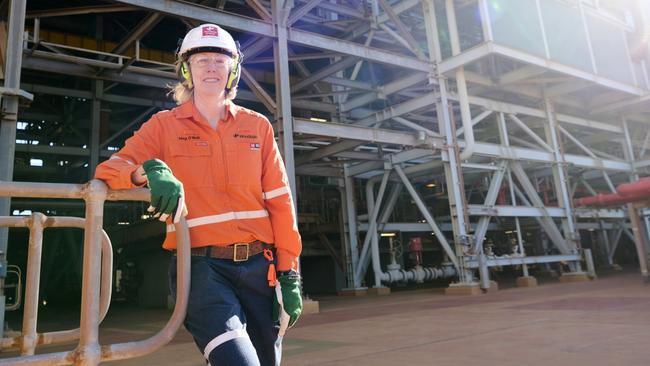Woodside pauses US hydrogen and solar projects as it responds to Trump’s energy shift
Woodside has paused work on a large-scale hydrogen development and a solar project as it moves to prioritise high value core assets - most notably a significant expansion of LNG.

Woodside Energy has paused work on a large-scale hydrogen development and a solar project in the US just a day after the election of Donald Trump as it targets the expansion of a gas plant in Louisiana boosted by the US President’s move to lift a freeze on LNG exports.
The suspension of works on the H2OK project and the solar Project Capella could please investors who were worried Woodside was ahead of market demand for lower-emission energy sources.
The fear was compounded by the election of US President Trump, who has promised to drastically bolster US energy production and lower subsidies for hydrogen production.
While not specifically pinning the decision on the change of US energy policy, Woodside’s chief executive Meg O’Neill made a thinly-veiled reference to the altering attitudes to fossil fuels.
“It is important to recognise in the US that the free markets and the capital markets often determine the pace of which investments are made. We would have seen a journey of 10-plus years where US oil and gas investors have refocused on capital discipline,” Ms O’Neill told The Australian.
“But the thing that is really welcomed from the Trump administration is his support for the oil and gas industry as underpinning a thriving domestic economy and that recognition that affordable energy allows other investments.”
President Trump on Monday issued an order for the US to reboot the processing of LNG project export permit applications, reversing a pause put in place by Joe Biden.
Ms O’Neill stressed that while Woodside was pausing work on the hydrogen and solar projects, it continued to press ahead with so-called new energy, low carbon projects - most notably the Beaumont ammonia project, which she said had larger growth opportunities. Woodside acquired the facility in Texas from US company OCI Global in a deal worth $US2.35bn ($3.75bn) in August 2024.
Still, Woodside continues to be heavily focused on LNG production and is poised to usher in a new period of sustained production growth.
Woodside late last year agreed a $US1.2bn deal to acquire a US LNG project known as Driftwood from US company Tellurian in a deal that catapulted the Australian energy company into one of the world’s biggest LNG players. Woodside has subsequently renamed Driftwood to Louisiana LNG.

Woodside is expected to make a formal declaration that it will proceed with the project by the end of March, though it has yet to conclude talks with potential partners who will acquire minority ownership and limit the economic burden on the Australian company.
Ms O’Neill said Woodside has received interest from “high quality” prospective investors and completing deals would be a key focus for the company in the next two months.
The expected green light has, however, has split the market. Although all agree Woodside will be able to broaden its global exposure with the US development, some have questioned the capacity of the company to keep delivering its returns to shareholders while making significant investments like Louisiana.
But the appeal of increased US LNG production is also growing, heightened yet further by President Trump’s announcement of a $500bn investment to build infrastructure for artificial intelligence led by three of the world’s foremost tech giants.
Softbank, Oracle and ChatGPT-maker OpenAI will unite in a joint venture, called Stargate, which will start with a data centre in Texas and then add locations in other states.
Ms O’Neill said Woodside has already noticed an increase in US energy demand, underscoring again she said the importance of affordable energy.
While the US has emerged as recent focus of Woodside, it continues to press ahead with its Australian expansion. Woodside said its $18.7bn Scarborough LNG project is on course for the first cargo by 2026, a project earmarked to meet rising demand from Asia.
But the project and Woodside’s proposed Browse development has placed the company in the cross hairs of environmentalists, which accuse the Australian company of hindering global efforts to delay action to curtail emission reductions.
Woodside rejects those claims, insisting LNG will allow for the reduction of coal generation, which has higher carbon emissions, and increased renewable energy generation.
But it continues to be in the cross hairs of opponents, which is in stark contrast to its standing in the US.
“We certainly appreciate the support for the industry, it is always good to be in a place where our investment is welcomed,” Ms O’Neill said of the US.
Ms O’Neill’s comments came as Woodside reported record full-year production of 194 million barrels of oil equivalent (MMBoe), The company said the performance was led by “outstanding” production from Sangomar project in Senegal.
Woodside reported quarterly revenues fell 6 per cent, however, to total $US3.47bn from the previous quarter as an unplanned outage at its WA project and reduced gas demand form Australia’s east coast weighed.





To join the conversation, please log in. Don't have an account? Register
Join the conversation, you are commenting as Logout